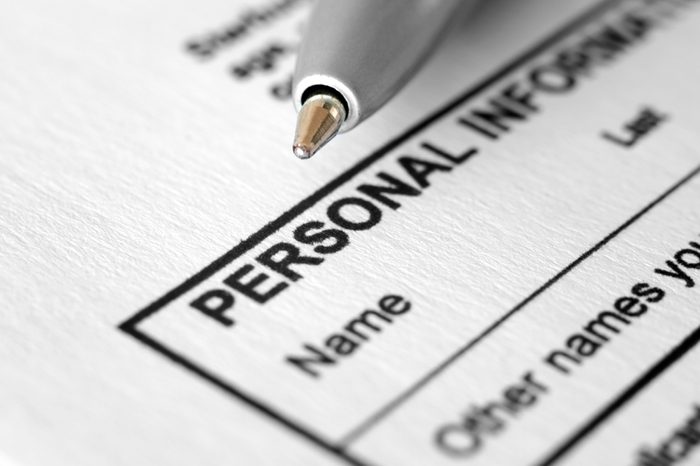
When it’s time to find a therapist
There are many different reasons why someone might want to see a therapist: a break-up, job woes, better relationships, debilitating anxiety or depression. Scouring the Internet for a therapist is like swiping through a dating app looking for the perfect match; you’ve got to sift through a lot of not-so-great options first before you find the real deal. And the real deal needs to be someone you’re comfortable with, someone who’s experienced in treating your type of challenge as well as someone who is licensed and credentialed. Sound confusing? It doesn’t have to be. Here are ways to identify the right mental health professional for you.

Ask someone you know for a referral
Referrals from people you trust may be one of the best ways to help you eliminate the duds and find your therapist-in-shining-armor. Ask your friends, family, or even your doctor because no one knows you better than they do. You can also ask your physician for a referral, or check out your insurance provider’s website, says Beverly B. Palmer, PhD, professor emeritus of psychology at California State University, Dominguez Hills and author of Love Demystified: Strategies for a Successful Love Life.
(Psst: See how your smartwatch could become your on-the-go therapist.)

Decide what type of therapy you want or need
It’s important to understand the differences between types of therapies, says Palmer. There are lots of different types out there: marriage and family specialist, social worker, licensed clinical psychologist, nurse practitioner, “clinical counselor” and more. “It’s gotten very complicated and all these people have different trainings,” says Palmer. You should also ask if the therapist (whatever the ilk) can treat your specific concerns, and if they’ve treated people like you. This could mean age, gender, religious beliefs or cultural values.
Realize yours isn’t right for you? Here’s how to break up with your therapist.

Take a look at their credentials
Fortunately, many therapists have their own websites or LinkedIn profiles where you can skim through their biography and resume to verify their years of experience and make sure their certifications are from an accredited institution. “If there are letters after their last name that I’m not sure what they mean, I would Google them to find out what that is,” says Chloe Carmichael, PhD, a psychologist in New York City. “A lot of the time therapists just want to put a long string of letters after their name because it sounds impressive to people, but when we Google what those letters are they actually mean very little.” Other signs of a good healthcare professional besides certification include experience and easy accessibility.
Psst: See how mindfulness can ward off stress.

Conduct a phone interview
Before you invest all your time and money in going to a therapist’s office, try a phone interview first. For some people, a phone call is a simple way to connect with a prospective therapist before that initial face-to-face interaction. “That phone conversation is important,” says therapist Sari Cooper, director of the Center for Love and Sex in New York City. “In my practice, we do phone intakes so we can get to know the person and see if we’re the right fit.” Phone calls help you gauge what the therapist is like because you can hear their voice, listen to their tone or speaking pace, and are able to ask introductory questions about their professional background or what they specialize in. It’s a great opportunity to determine if you could envision yourself talking to this person for 45 minutes each week.
Check out these best apps for soothing your mind.

Schedule a meeting
You don’t necessarily need to say when you make the appointment that you’re “interviewing” the therapist, says Palmer. But, in a way, that is what you’re doing. Your primary mission here is to see if the therapist is the right “fit.” Therapy is designed to be a confidential space for you to talk freely without being judged, so you should feel at ease sitting across from them on the couch. “[Therapy] needs to be a place where people are going to be able to openly talk about everything that’s on their mind,” says Anthony Tasso, PhD, board-certified clinical psychologist in Whippany, New Jersey. “Therefore, it’s crucial that the therapist works to create a safe, secure environment to explore such feelings.” If you leave a therapy session feeling judged or ridiculed by your therapist, then it may be time to part ways and continue your search for a therapist that better fits your needs.
Psst: Here’s how to stop yourself from overthinking everything.

Set goals in the first session
One clue you’ve found the right therapist is if they have treatment goals that align with yours. Goal setting is an important first step to ensure that you both are on the same page about issues you want to focus on. “I like to set goals that we both agree on to be very clear about the work that we are going to be doing,” says Angela Londoño-McConnell, PhD, psychologist and president of AK Counseling & Consulting, Inc., in Watkinsville, Georgia. Discussing your personal goals with a therapist helps you learn about their therapeutic approaches to your problems and whether you two are a fit. Aside from goal planning, learn about the other healthy habits you should adopt now.

Take in the environment
As you take your first step into their practice, take a moment to observe the therapist’s office environment. Are there stacks of paperwork strewn all over their desk? Are old office plants rotting away in a vase? If so, these could be clues that the therapist is disorganized or scatterbrained in their own professional life, which may make it hard for you to open up about your own career goals. (Here’s what their office should include to make them more productive and organized.) You want a therapist who has their ducks in a row and can offer you sound, valuable advice. “I’ve been surprised by the quality of some therapists’ offices,” says Carmichael. “Every session should lead you to organization, preparedness, energy, and wellness; if the person’s physical environment doesn’t communicate those things, I would be cautious of that.”

Watch their body language
You want a therapist who is approachable and sophisticated. “You have to ask yourself if is this someone I can picture myself having a relationship with week in and week out,” says Rachel Sussman, a licensed psychotherapist and founder of Sussman Counseling in New York City. It’s important to find a therapist who will actively engage with you similar to how an attentive friend would. Nods of the head, eye contact, writing notes, and asking relevant questions that dig deeper into the root of your problems are a few telltale signs that your therapist is listening to you. “If I were to see someone and they weren’t having eye contact with me, I would think this is weird,” says Sussman. Check out the secrets of naturally charming people.

Don’t be afraid to ask them what they think
Therapists are constantly asking you about your thoughts on your life experiences, so don’t be afraid to turn the tables on them and ask them for their input. “If there’s any question in your mind about whether they’re listening to you, you need to find out right away,” says Carmichael. “[You could say something like,] ‘I see you nodding your head, can you tell me what you think about what I’m saying.'” You want a therapist who will chime in with excellent, thought-provoking advice when you need them to. Hopefully, the therapist will volunteer any critical information, like if he or she doesn’t feel competent to treat your specific issue, says Palmer. In which case, you can ask for a referral.
Psst: These are the mental health issues you’re most likely to get in each decade of your life.

Figure out insurance issues beforehand
If you have insurance for therapy, find out right off the bat whether this therapist will accept it (and vice versa), says Palmer. You’ll also want to know how many sessions your insurance covers, how much each session will cost, charges for sessions you miss and even how many sessions (approximately) the therapist thinks you will need. There are other simple, but important questions to keep in mind: Where the therapist’s office is, what hours he or she keeps, if they’re available by phone (say in an emergency) and what kind of practice they have. Is it a private practice or part of a clinic or medical school?

Don’t feel pressured to pick the first therapist you meet
As with dating, when you’re choosing a therapist, keep your options open and meet a few different people before you make your final decision. Even better, consult with your parent, spouse, or friend to help you figure out who fits your wants and needs best. “I always caution prospective patients that when you’re having a consultation they should not feel pressured by the therapist to discuss certain topics before they are ready,” says Tasso. “I always feel it’s a bit of a warning sign when a therapist says, ‘Let’s hurry and have a follow up’ or ‘we must address this topic immediately.'”You want some alone time to reflect and make the best choice for you without the pressure of a therapist implicitly yelling, “Pick me! Pick me!”
See what helped one woman deal with her anxiety.

Give yourself more than one therapy session to get comfortable
Change doesn’t miraculously happen overnight. Therapy takes time and work to get where you want to be emotionally and mentally. For therapy novices, the first session is always a bit nerve-racking, but don’t let those first time jitters scare you away before you give them a chance. “If there’s a lot going on it may be difficult to get the actual therapy work right at first,” says Londoño-McConnell. “We [may] need to stabilize a crisis, get resources for this person, or get a good clinical picture first.” Give your potential therapist at least three to five sessions before calling it quits and looking elsewhere.
Check out the everyday habits that can increase your risk of depression.

Ask yourself if you’re the issue
As hard as it is to accept, you may be the one sabotaging your chances of having a productive therapy session, not your therapist. “I think it’s important for a patient to be able to say, ‘I’m starting to feel less comfortable being here,’ which allows the therapist and patient to determine if it’s the normal process of resistance or if the therapist is pushing the patient before he or she is ready,” says Dr. Tasso. “As you start to hit on some core themes, there’s frequently a part of us we are not aware of that says, ‘Oh, this is a little bit uncomfortable.'” Therapy is supposed to challenge you. Be willing to take a step out of your comfort zone to work through major obstacles before you get to the easy stuff.
Next, learn how to beat loneliness and enrich your life.
